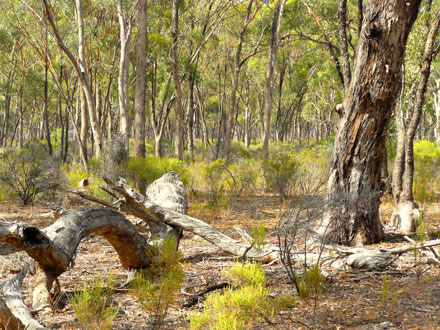The World Wildlife Fund seems a little confused over what logging is. Put simply, the WWF seems to have incorrectly lumped timber harvesting and private native forestry as contributing factors of deforestation and degradation. Source: Bruce Mitchell
In a “shock, horror” statement, the WWF identified Australia as the only developed nation on the list of the world’s deforestation hotspots. Among the 24 countries also named are Brazil, Indonesia, Colombia and Cameroon.
On the surface, it’s a shocking indictment.
In reality, it is possibly based on severely inaccurate data.
According to his Pervasive Inaction report, expansion of commercial agriculture and tree plantations are the biggest drivers of deforestation around the world.
It lays the blame on land clearing or land-use change.
And the report points a large finger of blame on Tasmania where it says new deforestation and land clearing hotspots have emerged since 2015.
Yes, trees are chopped down to make space for other farming practices, make way for suburbs, roads, mining operations, city infrastructure and so on.
We all know that. And the report is accurate in drawing that rather obvious conclusion.
Where the WWF’s argument falls down is when a tree is cut down in a commercial operation, another tree – in fact quite often a number of trees – are replanted.
This means that rather than deforestation the industry is actually involved in reafforestation.
As IFA President Bob Gordon said, it is important that land clearing or deforestation that converts forests to other land uses should not be confused with sustainable forestry – they are two very different activities.
Indeed, they are.
Tasmanian Forest Products Association CEO Nick Steel said it was wrong to link Tasmania’s forest industry to deforestation and he wants the WFF to correct the record.
He says that since the Tasmanian Forest deal was repealed in 2014 there hasn’t been a single additional hectare made available for harvesting as result of the agreement ending.
Mr Steel said it was scandalous an organisation with supposed scientific credibility such as the WWF can suggest otherwise in the public sphere with such a throwaway comment, without supporting evidence.
Strong words indeed.
The WWF is an honourable body that does much good work around the world. In fact, the planet would be a poorer place without the WFF.
It would be a shame if that good work is undermined by reports such as this.







